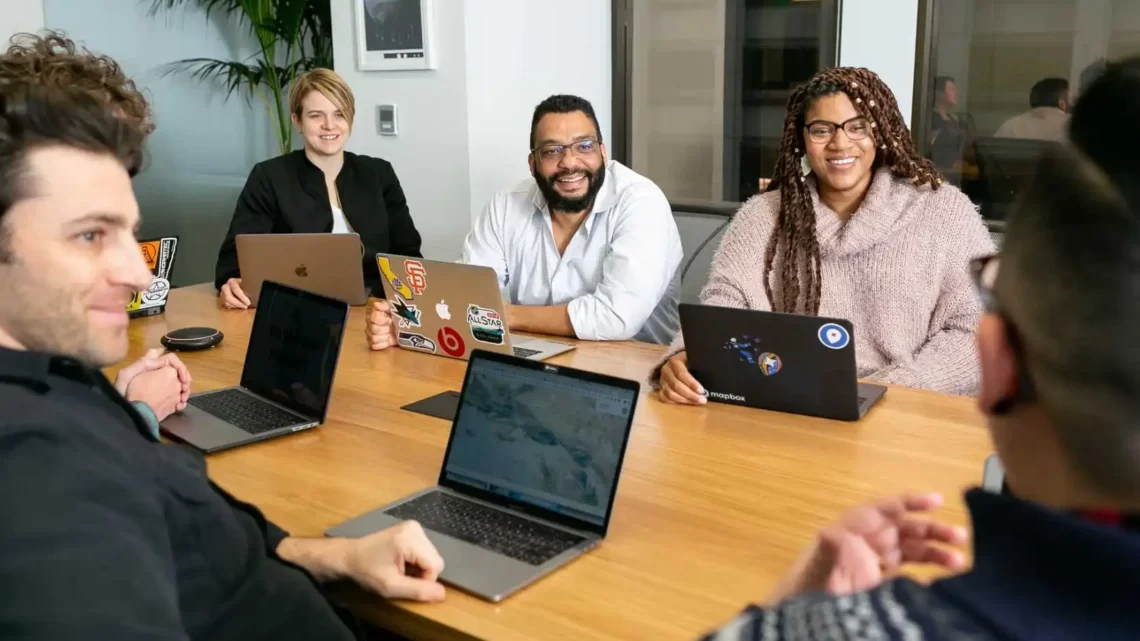
How to be an effective communicator
August 19, 2022Being an effective communicator is essential in any field or occupation. Learning how to communicate effectively will help to improve your relationships, both personal and professional. There are a number of things that you can do to improve your communication skills, and the following tips will help you to get started.
How to be an effective communicator
1. Talk to people face-to-face whenever possible.
This is the best way to build rapport and to ensure that you are understood. It is also a great way to get to know someone.
2. Use positive body language.
Studies have shown that people are more likely to trust and confide in someone who is using positive body language. Make sure to keep your posture erect, your arms and hands open, and your facial expressions positive.
3. Be aware of your tone of voice.
Your tone of voice can be just as important as your words. Be sure to speak in a clear, concise, and friendly manner.
4. Be patient and take the time to listen.
The best communicators are good listeners. Make sure to pay attention to what the other person is saying and to ask questions if you need clarification.
5. Avoid interrupting.
It can be tempting to interrupt someone who is speaking, but it is important to let the other person finish their thought. This will show that you are interested in what they have to say.
6. Avoid using jargon.
Jargon can be confusing and can make it difficult for the other person to understand what you are saying. Use clear and concise language whenever possible.
7. Avoid using negative body language.
Negative body language can send the wrong messages and can make it difficult to establish trust. Be aware of your facial expressions and gestures, and make sure to maintain a positive demeanor.
8. Be prepared.
Make sure to do your research and to come to meetings with questions and ideas prepared. This will show that you are serious about the discussion and that you are invested in the outcome.
9. Be assertive.
It is important to be assertive when communicating. This means making your voice heard and standing up for what you believe in.
10. Be respectful.
No matter what the situation, it is important to be respectful of the other person. This will help to create a positive and productive dialogue.
How To Be An Effective Communicator As A Leader
1.Understand your audience.
As a leader, it is important to understand the different audiences you will be communicating with. Each audience will have different needs and expectations, so it is important to tailor your message to fit their needs. This may require some research on your part, but it will be worth it in the long run.
2. Be clear and concise.
When communicating as a leader, it is important to be clear and concise. You don’t want to overwhelm your audience with too much information, but you also want to make sure they understand your message. Be sure to use language that is easy to understand, and avoid using jargon or complex terms.
3. Make use of visuals.
visuals can be an extremely effective way to communicate as a leader. When used correctly, visuals can help to convey your message in a clear and concise way. They can also help to engage your audience and keep them interested in what you have to say.
4. Use storytelling.
One of the most effective ways to communicate as a leader is to use storytelling. Stories can help to engage your audience and make your message more memorable. They can also help to illustrate your point in a more engaging way.
5. Be attentive and responsive.
As a leader, it is important to be attentive and responsive to the needs of your audience. If they have any questions or concerns, be sure to address them promptly. This will help to build trust and confidence with your audience.
How To Be An Effective Communicator In A Relationship
A. Establish common goals
Both parties in a relationship should be on the same page with regards to their objectives. This means that they should be able to agree on things like what they want from the relationship, what their priorities are, and what they are willing to do to make the relationship work. If there is a lack of communication or miscommunication about these things, it can lead to tension and conflict.
B. Communicate effectively
Communication is key in any relationship. This means that both parties need to be open and honest with each other, and they need to be willing to listen to each other. Communication should be two-way, not one-sided. If one person is always doing all the talking, it can lead to misunderstandings and resentment.
C. Resolve conflicts constructively
Conflicts are inevitable in any relationship, but it is important to resolve them in a constructive way. This means that both parties need to be willing to compromise and to find solutions that are agreeable to both of them. It’s important to remember that no one is perfect, and that everyone makes mistakes. It’s also important to forgive and to move on.
D. Be supportive
Both parties in a relationship should be supportive of each other. This means being there for each other when things are good and bad, and being willing to offer encouragement and positive reinforcement. It’s also important to be honest with each other, and to tell each other the truth even if it’s painful to hear.
E. Be patient
Relationships take time to develop and grow. It’s important to be patient and to allow things to unfold naturally. Don’t try to force things or push the other person into doing things that they’re not ready for. Relationships should be fun and enjoyable, and both parties should be willing to put in the effort to make them work.
How To Be An Effective Communicator At Work
1. UNDERSTAND THE PURPOSE OF COMMUNICATION
The first step to becoming an effective communicator at work is to understand the purpose of communication. Communication is the process of sharing information and ideas between people. It can be used to pass on instructions, provide feedback, and collaborate on projects.
2. LISTEN ATTENTIVELY
Good communication starts with active listening. When you are listening attentively, you are making a conscious effort to understand the other person’s point of view. You are not just waiting for your turn to speak.
3. ASK QUESTIONS
If you don’t understand something, ask questions. Don’t be afraid to speak up and ask for clarification.
4. BE PREPARED TO COMMUNICATE
Make sure you are well-prepared before you need to communicate with your colleagues. This means having all the relevant information at your fingertips, and taking the time to understand the issue at hand.
5. BE CONCISE
When you are communicating with your colleagues, be concise and to the point. Don’t waffle on and on. Get to the point and avoid using complex language.
6. BE TRANSPARENT
If you have made a mistake, be honest and transparent about it. Don’t try to cover it up or make excuses. Own up to your mistake and apologise.
7. BE RESPECTFUL
Always be respectful when communicating with your colleagues. Don’t be rude or condescending.
8. BE PATIENT
If the other person isn’t understanding what you are saying, don’t get frustrated. Be patient and take the time to explain things further.
9. USE ASSERTIVE COMMUNICATION
When communicating with your colleagues, use assertive communication. This means being clear andassertive in your communication, without being aggressive.
10. BE FLEXIBLE
Be prepared to adapt your communication style depending on the situation. If the other person is more senior than you, or if the situation is more formal, adjust your communication style to match.
Conclusion
The key to being an effective communicator is to be aware of the different ways that people communicate and to use the appropriate mode of communication for the situation.
Effective communication is essential for any successful relationship. By understanding and using effective communication strategies, you can build strong relationships with others.









